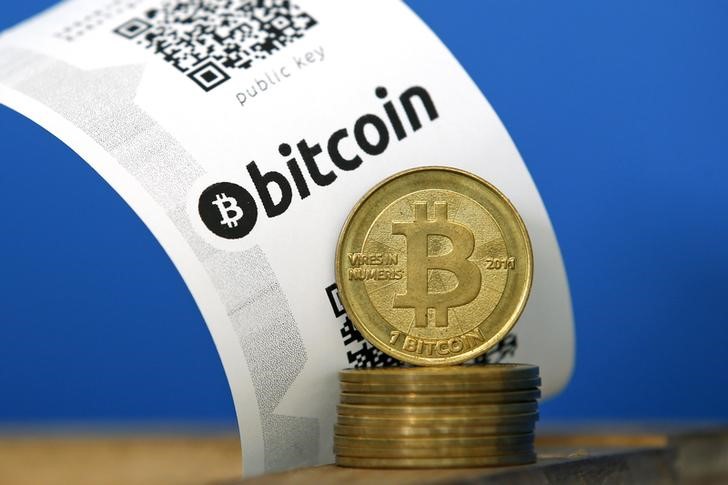Crypto
Former Amazon engineer pleads guilty to stealing $12.3 million of crypto in first ever hacking case involving smart contracts
- An ex-Amazon engineer pleaded guilty this week to hacking two cryptocurrency exchanges.
- The conviction is the first ever secured in a case involving the hacking of a smart contract.
- He’ll face up to five years in prison and will be made to pay back $12.3 million in stolen funds.
A former Amazon engineer this week pleaded guilty to hacking two cryptocurrency exchanges in a landmark case that resulted in the first ever conviction involving the hacking of a smart contract.
Shakeeb Ahmed, who previously worked as a security engineer for Amazon, will face up to five years in prison and will have to forfeit $12.3 million worth of stolen cryptocurrency, according to a statement from the United States Attorney for the Southern District of New York.
The hacks, which took place in 2022, targeted Nirvana Finance and a second unnamed crypto exchange on the Solana blockchain.
Blockchain is essentially a digital ledger allowing users to store data, including financial transactions, in a decentralized environment. One benefit to blockchain is security because the stored data cannot be edited.
Ahmed exploited a vulnerability in the exchange’s smart contracts, according to the US Attorney, allowing him to submit falsified data that resulted in the contracts generating millions of dollars worth of inflated fees he hadn’t earned.
What are smart contracts?
Smart contracts are blockchain programs that, like a vending machine, execute specified functions when predetermined conditions are met. For example, a landlord leasing an apartment could use a smart contract in which the renter must transfer a security deposit to receive the apartment door code.
Ahmed was able to reverse engineer the steps needed to make the exchanges pay out massive sums by using specialized skills he developed working for Amazon, according to the US Attorney.
Ahmed then attempted to cover his tracks by negotiating with the unnamed crypto exchange. He said he’d agree to return all of the stolen funds, less $1.5 million if the exchange agreed not to contact law enforcement about the hack, prosecutors said.
After hacking the first exchange, Ahmed targeted Nirvana’s cryptocurrency, ANA, exploiting a function of the cryptocurrency intended to inflate each token’s price after a large sum was purchased. Using a workaround in Nirvana’s smart contract, Ahmed could buy $10 million worth of ANA tokens at an artificially lowered price and sell them for $3.6 million in profit.
“Nirvana offered AHMED a ‘bug bounty’ of as much as $600,000 to return the stolen funds, but AHMED instead demanded $1.4 million, did not reach agreement with Nirvana, and kept all the stolen funds,” according to the US Attorney statement. “The $3.6 million AHMED stole represented approximately all the funds possessed by Nirvana, which as a result shut down shortly after AHMED’s attack.”
Ahmed stole over $12 million and “tried to cover his tracks by swapping stolen crypto for Monero, using cryptocurrency mixers, hopping across blockchains, and utilizing overseas crypto exchanges,” US Attorney Damian Williams said in a statement.
Representatives for the United States Attorney for the Southern District of New York did not immediately respond to a request for comment from Business Insider.
In theory, the benefit of a smart contract is to eliminate the risk of fraud by a middleman or, say, a broker. However, the program has been vulnerable to attacks by hackers.
About $2.2 billion in cryptocurrency was stolen in 2022 from Decentralized Finance (DeFi) projects, allowing people to carry out financial transactions without needing third parties or financial institutions such as banks.
The New York Times reported that many of the thefts were carried out by taking advantage of vulnerabilities in smart contracts. Since smart contracts are built upon open-source code, hackers can make themselves aware of the inner workings of the software and take advantage of any vulnerabilities.

Crypto
Nigerian Officials Demanded Huge Crypto Payments To Make Cryptocurrency Probe ‘Go Away,’ Binance CEO Claims – Arise News

The CEO of prominent cryptocurrency platform Binance, Richard Teng, unveiled in a blog post on Tuesday that undisclosed individuals in Nigeria sought substantial payments in digital currency to resolve the company’s challenges in the country.
The revelation comes in the wake of the detention of two senior Binance executives by the Nigerian government on February 28. Nadeem Anjarwalla and Tigran Gambaryan were held as part of an investigation into alleged illegal operations and forex rate manipulations.
Teng detailed Binance’s efforts to engage with Nigerian authorities, citing a meeting in Abuja on January 8, where the company faced criminal accusations.
He said that despite repeated requests, Binance did not receive specifics of the allegations, prompting concerns about the fairness of the process.
Teng said, “There were a number of reasons for that, including the sensitivity of the information and getting the opportunity to see the allegations in full and prepare a thorough substantive response.”
“The meeting ended with the Chair confirming they would consider the matter and revert through Binance’s local counsel.
“However, as our employees were leaving the venue, they were approached by unknown persons who suggested to them to make a payment in settlement of the allegations.
“Later that day, our local counsel — representing us at that time — was summoned by the Committee through someone purporting to be their agent, who relayed the Committee’s terms and instructed our local counsel to advise us.
“Counsel reported back that he had been presented with a demand for a significant payment in cryptocurrency to be paid in secret within 48 hours to make these issues go away and that our decision was expected by the morning.
“Our team grew increasingly concerned about their safety in Nigeria and immediately departed.”
The Binance CEO however revealed that the request for payment was declined because it was not seen to be a “legitimate settlement offer”.
According to Teng, Binance made it clear that it would only negotiate a settlement after viewing the pertinent petition or the specifics of all the accusations. Any settlement “must be official, recorded in writing, and signed by all relevant parties,” he added.
Ozioma Samuel-Ugwuezi
Follow us on:
Crypto
Bernstein doubles down on $150,000 target for Bitcoin price By Investing.com

Bernstein analysts are confident that is on its way to $150,000 per coin by mid-2025 despite recent market corrections, the broker said in a research report on Tuesday.
The firm cites a shift from sentiment-driven to structurally-driven demand in Bitcoin markets, led by institutional interest and inflows into ETFs. As Bitcoin resumed its upward trajectory after dipping to a low of around $57,000, Bernstein noted the clearing of excess leverage in futures contracts and a positive reversal in ETF outflows.
A major highlight was the Grayscale Bitcoin Trust (BTC) (NYSE:) reporting its first inflow after 78 consecutive days of outflows, a milestone given its impact on market dynamics.
“Bitcoin’s current position at around $64,000 is just the beginning. The structure of the market is far stronger than during the 2021 euphoria at similar levels, largely driven by clear ETF-driven demand,” the report reads.
The bullish outlook is further supported by the sheer volume of cash flooding into Bitcoin ETFs, amassing nearly $12 billion within just three months of their launch. Bernstein expects this trend to persist, driven by increased allocations from private banks, wealth managers, and institutional investors, projecting around $70 billion in new inflows between 2024 and 2025.
The report also points to favorable regulatory developments and corporate adoption, citing companies like Block integrating Bitcoin into their treasury strategies. Moreover, the stability in Bitcoin’s hash rate post-halving and healthy miner transaction fees indicate a resilient mining sector poised for long-term market growth.
Bernstein expects that higher Bitcoin prices and transaction fees will offer miners a buffer even if production costs double post-halving.
remove ads
.
Mining stocks have lagged behind the Bitcoin rally due to investors favoring a “long Bitcoin, short miners” strategy. The rationale behind this approach is the perceived safety in buying spot ETFs compared to mining stocks, which are susceptible to risks associated with the halving.
“Bitcoin mining dynamics are also supporting the market, with public miners expanding capacity and negotiating favorable terms amidst competitive pressures from AI capital expenditures,” Bernstein added.
With all these factors in place, Bernstein remains confident in their $150K Bitcoin target, viewing current prices as an attractive risk-reward opportunity for investors. The firm believes we are in the early stages of a longer and healthier Bitcoin cycle that could extend well into 2025.
Crypto
Cryptocurrency Price on May 7: Bitcoin falls below $63,700; Shiba Inu, Dogecoin tank 5%

As of 12:14 p.m., Bitcoin was trading 1% lower at $63,649, while Ethereum experienced a 3.5% drop to $3,068. Additionally, altcoins like BNB (-1.1%), Dogecoin (-4.9%), Toncoin (2.6%), Cardano (3.3%), Avalanche (-3.1%), and Shiba Inu (-5.2%) followed suit in the downward trend.
The crypto market sentiment was further impacted by news of significant transfers from FTX-associated addresses and a Wells Notice issued to Robinhood by the SEC, alleging unauthorized digital asset trading categorized as securities.
Crypto Tracker
CoinDCX Research Team noted, “In the short term, both BTC and ETH show bearish price action, though the higher time frame remains bullish. BTC needs to reclaim the $67,000 level, while ETH must surpass $3,250 to regain momentum.”Also Read: Grayscale Bitcoin Trust’s shares jump after first inflow since JanuaryStablecoins accounted for $69.86 billion in volume, representing 91.12% of the total crypto market’s 24-hour volume, according to CoinMarketCap.Within the same timeframe, Bitcoin’s market cap rose to $1.253 trillion, with BTC volume surging by 67.8% to $30.57 billion.Vikram Subburaj, CEO of Giottus, analyzed Bitcoin’s technicals, stating, “Bitcoin, after breaching $65,000 briefly, is consolidating above $63,500 today. The asset has found strong support at the 0.5 fib extension ($60,700), aligned with its 100-day MA at $60,850. Its RSI levels continue to improve towards a neutral territory. Bitcoin can consolidate at these levels for a few more days before it holds $65,000 and turns bullish.”
Regarding Cardano, Rajagopal Menon, Vice President at WazirX, remarked, “Cardano is looking at an accumulation phase which means the network could see more buying activity in the coming days, creating a potential for a price surge. Its technical indicators are favourable and all signs point to a buying activity for investors in the coming days.”
In Tuesday’s trade, Cardano saw a 3.3% decline to $0.4476. Over the past month, the crypto token dropped by 24%, yet it rallied by 17% over the last year.
(Disclaimer: Recommendations, suggestions, views and opinions given by the experts are their own. These do not represent the views of The Economic Times)
-

 World1 week ago
World1 week agoRussian forces gained partial control of Donetsk's Ocheretyne town
-
Movie Reviews1 week ago
Challengers Movie Review
-

 Politics1 week ago
Politics1 week agoDems disagree on whether party has antisemitism problem
-

 Politics1 week ago
Politics1 week agoWashington chooses its wars; Ukraine and Israel have made the cut despite opposition on right and left
-

 Politics1 week ago
Politics1 week agoHouse Republicans brace for spring legislative sprint with one less GOP vote
-

 World1 week ago
World1 week agoAt least four dead in US after dozens of tornadoes rip through Oklahoma
-

 Politics1 week ago
Politics1 week agoAnti-Trump DA's no-show at debate leaves challenger facing off against empty podium
-

 Politics1 week ago
Politics1 week agoStefanik hits special counsel Jack Smith with ethics complaint, accuses him of election meddling


















